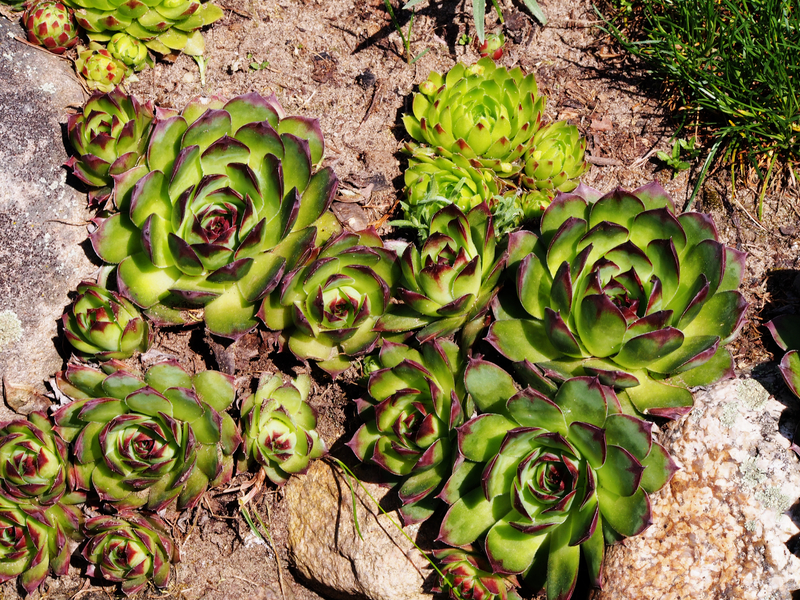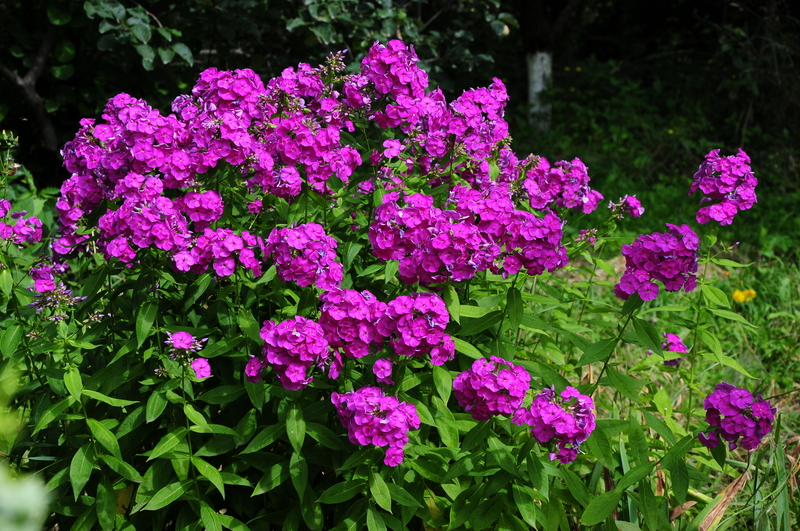Planting the Seeds: 9 Beginner-Friendly Gardening Tips
Posted on 27/05/2025
Planting the Seeds: 9 Beginner-Friendly Gardening Tips
If you're looking to start a new hobby or simply hoping to beautify your living space, gardening is a fulfilling and therapeutic way to connect with nature. Whether you have a sprawling backyard or just a small balcony, planting the seeds of your own garden can be immensely rewarding. This comprehensive guide offers 9 beginner-friendly gardening tips that will help you cultivate a thriving green sanctuary, even if you've never picked up a trowel before.
Why Start Gardening? Benefits for New Gardeners
Before digging into the essentials, it's worth considering why gardening is such a popular and beneficial pastime. Starting your gardening journey can:
- Reduce stress by providing relaxing outdoor activity
- Promote healthier eating by growing your own produce
- Enhance your outdoor or indoor aesthetic
- Encourage physical activity and fresh air
- Offer opportunities for continuous learning
With these proven advantages, even simple backyard gardening can enhance your daily life. Let's discover how to get started!

1. Choose the Right Location for Your Garden
The first step in planting the seeds of gardening success is choosing the correct spot. Plants require proper sunlight, air, and drainage to thrive. Consider these key aspects:
- Sunlight: Most edible and ornamental plants need at least 6-8 hours of direct sun per day.
- Accessibility: Place your garden where you'll remember to water and tend it regularly.
- Protection: Avoid low spots where water pools after rain, and opt for locations sheltered from strong winds.
- Space: Whether it's a raised bed, containers, or ground plot, make sure there is enough room for your plants to grow.
Plant the seeds of success by giving your plants the environment they need to flourish from day one.
2. Start Small and Build Confidence
Beginner gardeners are often tempted to plant too much, too soon. Start small--a few pots of herbs or a 4x4-foot raised bed will provide manageable experience. As you gain confidence, you can expand your garden's size or variety.
- Choose 3-5 easy plants to start, such as basil, tomatoes, or marigolds.
- Track your progress and celebrate small milestones.
- Gradually experiment with more challenging varieties as your skills improve.
Small beginnings allow you to learn at a comfortable pace and prevent common pitfalls.
3. Select Beginner-Friendly Plants and Seeds
The heart of beginner gardening is choosing plants that match your local climate, soil, and sunlight. Opt for plants known for being hardy and forgiving. Some popular options include:
- Vegetables: Lettuce, radishes, carrots, and green beans
- Herbs: Basil, cilantro, chives, and parsley
- Flowers: Sunflowers, marigolds, pansies, and zinnias
Check your plant's seed packet or label for care instructions and planting dates. If in doubt, consult a local nursery or extension service for recommendations tailored to your area's growing conditions.
4. Understand Your Soil and Prepare It Properly
Healthy soil is crucial for successful gardening. Most plants need soil rich in nutrients, with proper drainage and a balanced pH. Here's how to prepare your garden soil:
- Test Your Soil: Simple kits from garden centers can reveal your soil's pH and nutrient levels.
- Add Organic Matter: Mixing in compost, well-rotted manure, or peat moss improves structure and fertility.
- Loosen the Soil: Turn the soil with a spade or fork to a depth of at least 8-12 inches to ensure roots can spread.
Tip: If your soil is poor or space is limited, container gardening with high-quality potting mix is an excellent alternative for beginners.
5. Planting Seeds vs. Seedlings: Which Is Best?
One key decision in starting your garden is whether to plant seeds directly or use mature seedlings. Here's a comparison to help you decide:
- Seeds: Cheaper, greater variety, rewarding to grow from scratch. However, they require patience and careful attention in the early stages.
- Seedlings (Starts): Faster results, easier for beginners, but usually offer fewer varieties and can be pricier.
Mix and match! Many gardeners use both: seeds for fast-growers or direct sow crops, and seedlings for slower starting or delicate plants.
6. Water Wisely: The Secret to Healthy Plants
Providing just the right amount of water is essential for beginner garden success. Both over- and under-watering can cause problems. Follow these strategies:
- Check Soil Moisture: Before watering, stick your finger 1-2 inches into the soil. If it's dry, it's time to water.
- Water Deeply and Infrequently: This encourages robust root growth. Aim for thorough watering 2-3 times a week rather than a daily sprinkle.
- Water Early: Water your garden in the morning to minimize evaporation and prevent fungal diseases.
Remember: Container plants usually need more frequent watering than those in garden beds. Drought-tolerant plants are a good choice for low-maintenance gardens.
7. Mulch and Feed for Flourishing Growth
Mulching is a simple step with big benefits for both flower and vegetable gardens:
- Prevents weeds from sprouting
- Conserves soil moisture
- Regulates soil temperature
- Enriches soil as organic mulch decomposes
For best results, spread 2-3 inches of organic mulch such as bark, straw, or leaves around your plants--keeping it a few inches away from plant stems.
Feeding your plants is also vital. Use a balanced, slow-release fertilizer appropriate for each plant type. Follow label instructions carefully--over-fertilizing can be detrimental.
8. Monitor for Pests and Diseases Proactively
Nothing is more discouraging for new gardeners than seeing their fledgling plants attacked by pests or disease. Protect your plants by:
- Inspecting regularly for signs of trouble--holes in leaves, discoloration, or stunted growth
- Encouraging natural predators like ladybugs and birds
- Removing affected leaves or plants promptly to prevent spread
- Using organic solutions such as neem oil or insecticidal soap if needed
Learning to identify common problems early and responding quickly is a cornerstone of successful gardening for beginners.
9. Keep a Garden Journal and Celebrate Your Progress
The final tip for growing your own garden is all about learning and enjoyment. Maintain a simple journal or take photos to keep track of:
- Planting dates
- Weather conditions
- Harvest yields
- Unusual successes or failures
Gardening is a journey, not just a destination. Documenting your triumphs and mistakes helps you improve year after year and makes the process even more rewarding.
Additional Expert Tips for Beginner Gardeners
- Rotate crops each season to prevent soil depletion and pest buildup.
- Experiment with companion planting--certain plant pairings improve growth and deter insects.
- Don't be afraid to ask for help! Join online gardening forums or local clubs for advice and inspiration.

Frequently Asked Questions About Planting Your First Garden
What month is best to start planting a garden?
The ideal month depends on your local climate. In many regions, early spring (March-April) is best for cool-season crops, and late spring (May-June) for warm-season varieties. Always check the last frost date for your area!
Can I garden with only a small patio or balcony?
Absolutely! Container gardening with potted herbs, salad greens, and dwarf vegetables is perfect for tight spaces. Use vertical planters to maximize room.
How often should I fertilize my plants?
Most suitable beginner garden plants benefit from feeding once a month with a balanced, slow-release fertilizer. Check specific requirements for each plant type and always avoid over-fertilizing, which can harm roots.
Conclusion: Start Your Gardening Journey Today
Planting the seeds of a new garden is much more than a weekend project--it's an investment in your well-being, your knowledge, and your environment. With these 9 beginner-friendly gardening tips in hand, you're ready to grow a vibrant, healthy garden--even if you're just starting out.
Remember, every great gardener began as a beginner. With patience, observation, and a willingness to get your hands dirty, you'll soon enjoy the fruits (and flowers!) of your labor. Happy gardening!
- Ready to get started? Share your planting plans or beginner garden tips in the comments below!
Latest Posts
Biological Recycling: Waste to Enriched Soil
Design the Perfect Garden Relaxation Zones
The Art of Vertical Gardening Design



